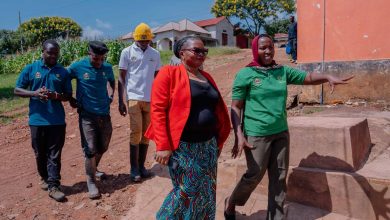EA aligns capital investment with vision 2050 goals

ARUSHA: REGIONAL public and private sector leaders have urged greater collaboration to align domestic capital with East Africa’s long-term development goals, building on the strong foundations set by regional governments.
The call came during the East Africa Institutional Investors Forum held in Arusha on Tuesday and Wednesday this week.
The forum brought together regulators, pension funds, development financiers, commercial banks and key ministries from Tanzania, Kenya and Uganda to explore how regional capital can play a greater role in funding infrastructure.
Jointly hosted by Stanbic Bank Tanzania, Kenya and Uganda, the forum focused on complementing and accelerating national development efforts such as Tanzania’s Vision 2050 and regional strategies under the EAC Vision 2050.
Discussions highlighted the opportunity to leverage longterm savings held by pension funds and institutional investors to support projects in energy, housing, water, transport and digital connectivity.
“There is a growing alignment between public sector development goals and private sector capital flows,” said Executive Vice-President for Energy and Infrastructure at Stanbic Bank Tanzania, Mr Aboubakar Massinda.
“This forum reflects our shared commitment to working in partnership with governments to deliver inclusive, sustainable infrastructure across the region.” Speaking at the opening, Vice-President for Financial Institutions at Stanbic Bank Tanzania, Mr Benedict Nkini emphasised the bank’s longstanding cooperation with government institutions.
ALSO READ: What vision 2050 means for women
“For over thirty years, we have worked side by side with public and private stakeholders in Tanzania to structure investment solutions that deliver. We are now extending that collaborative spirit to the wider region.” Participants welcomed the progress made by governments to strengthen public investment systems, deepen capital markets and create enabling environments for public-private partnerships.
Director of Planning at the East African Community (EAC), Aime Uwase said the forum was well-aligned with ongoing regional integration efforts.
“The EAC Vision 2050 recognises infrastructure as a key driver of growth and this platform demonstrates the collective will to mobilise capital through joint action,” Uwase said.
Panel discussions reflected a consensus that sustainable financing of infrastructure must balance national policy leadership with the participation of institutional capital. While estimates place East Africa’s infrastructure financing needs at over 42 billion US dollars, stakeholders noted that ongoing reforms have created a solid base to attract long-term investment.
Transaction Advisor at CPF Capital and Advisory Services, Githuku Mwangi praised the forum as a space for building shared understanding.
“What we see here is not a critique, but an opportunity. East African economies have come far. Now it is about strengthening the collaboration between banks, fund managers and policymakers to ensure that all parts of the financial ecosystem work together,” Mwangi said.
The forum highlighted the importance of clear processes, capacity building and continued regulatory dialogue. Development finance institutions present at the forum expressed willingness to provide concessional finance and technical assistance not to replace government efforts, but to support their effective implementation.
With Tanzania actively pursuing inclusive and sustainable infrastructure through Vision 2050, the forum’s message was one of support and strategic partnership.
Stanbic Bank, which was recently named Best Investment Bank in Tanzania by Euromoney, reaffirmed its commitment to serving as a bridge between national priorities and private sector capacity.
“This forum is just the beginning,” organisers said.
ALSO READ: Tanzania’s Vision 2050: Aspirations Meet Arithmetic
“The region has the vision, the institutions and the resolve. Our role is to listen, align and support that momentum.” Regional capital plays a crucial role in funding infrastructure by providing a stable, long-term source of financing tailored to the region’s development needs.
Mobilising domestic investment reduces reliance on external debt and foreign aid, fostering economic resilience and ownership. By channeling regional capital into infrastructure projects, East Africa can accelerate growth, improve connectivity and enhance public services, ultimately driving sustainable development and integration across the region.





